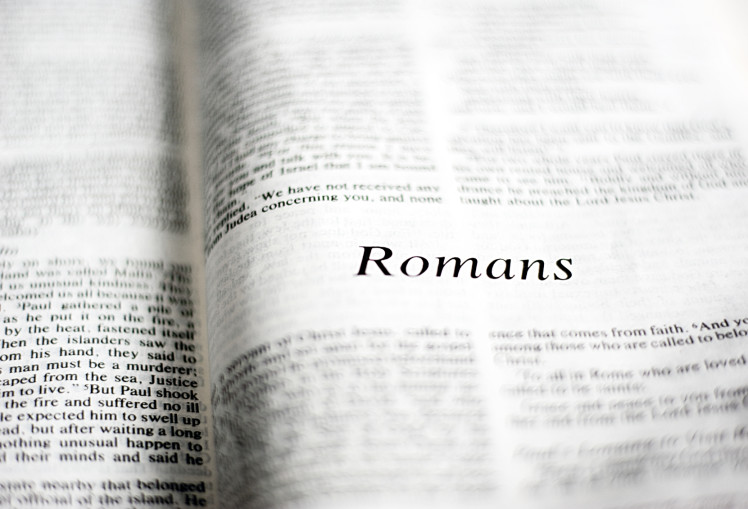Blog

Romans Bible Guide – Day Nine
February 23, 2016
Previously, in Romans: While arguing for the universal brokenness and need of humankind, Paul took us on a quick tangent to deal with a few questions that might have been coming up, particularly for his Jewish readers.
Romans 3:9-20
9 What then? Are we any better off? No, not at all; for we have already charged that all, both Jews and Greeks, are under the power of sin, 10 as it is written:
“There is no one who is righteous, not even one;
11 there is no one who has understanding,
there is no one who seeks God.
12 All have turned aside, together they have become worthless;
there is no one who shows kindness,
there is not even one.”
13 “Their throats are opened graves;
they use their tongues to deceive.”
“The venom of vipers is under their lips.”
14 “Their mouths are full of cursing and bitterness.”
15 “Their feet are swift to shed blood;
16 ruin and misery are in their paths,
17 and the way of peace they have not known.”
18 “There is no fear of God before their eyes.”
19 Now we know that whatever the law says, it speaks to those who are under the law, so that every mouth may be silenced, and the whole world may be held accountable to God. 20 For “no human being will be justified in his sight” by deeds prescribed by the law, for through the law comes the knowledge of sin.

Points of Interest:
- ‘What then? Are we any better off?’ – Perhaps it seemed clear to all of us already that no one is better off before God, despite any status or advantages people appear to have. Perhaps, though, after claiming that it is a good thing to be Jewish, Paul feels the need to return to his main point, that nothing – not religious heritage, not education, not high-status privilege – makes you better off as a person. We’re all in the same boat.
- ‘are under the power of sin’ – That same boat we’re in, without God’s help, is a sinking one. Paul says that sin – all the ways we miss the mark – isn’t a series of mistakes but a malevolent, almost personal force within us, determined to ruin our lives. Those of us who have battled addiction or bad tempers or any other number of personal demons have found this to be true as well.
- ‘There is no one who is righteous’ – Again, Paul’s writing is soaked in the Hebrew scriptures, whether he’s directly quoting them in the moment or not. Here there’s a whole mash-up of quotations. For those checking at home, here are the references: Ecclesiastes 7:20, Psalm 14:1, Psalm 14:53, Psalm 5:9, Psalm 140:3, Psalm 10:7, Isaiah 59:7-8, and Psalm 36:2.
- The primary meaning of all this Bible quoting is clear. He appeals to a source his Jewish readers would trust – their Bible – to make the point that his own argument of universal human sin is not original. That said, N.T. Wright’s commentary points out that in their context, every single one of these references is near to a prayer or promise that God would prove himself righteous – good and just and in right relationship – by rescuing people from ourselves.
- ‘so that every mouth may be silenced’ – This is an interesting goal God has in mind. Some people have seen God’s law as a tool for self-advancement, a way to justify themselves as better than their fellow humans. Paul says that doesn’t work out so well, because God’s expectations tend to show us what’s wrong with us, more than what is right in us. Perhaps silence is better than all that self-justification. Like a kid busy making excuses when caught in the act, it would be more helpful to just stop talking and ask for forgiveness and help.Paul has the humility to apply this extended argument to his own culture and religion, but the extension to the Roman elite in these house churches, or to ourselves for that matter, isn’t that hard to make. Whatever it is that we use to justify ourselves or make us look more favorable than others, or gain privilege over others, we are still broken and flawed human beings, exposed as needy before God.
Taking It Home:
For you – Consider a different mode of prayer for a minute. Tell God that you know you are no better than anyone else, and that you too are a broken sinner. Then simply be silent for a while.
For your church/city – Not unlike Roman society, ours appears to be status and privilege-obsessed as well. Whether through the quality of our resume or the numbers of our Instagram followers, we find meaning in comparison to others. Pray that God would break through our city’s obsession with education and achievement and popularity to give people the freedom to embrace their common humanity, and their common need for God.

